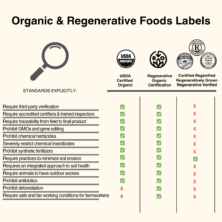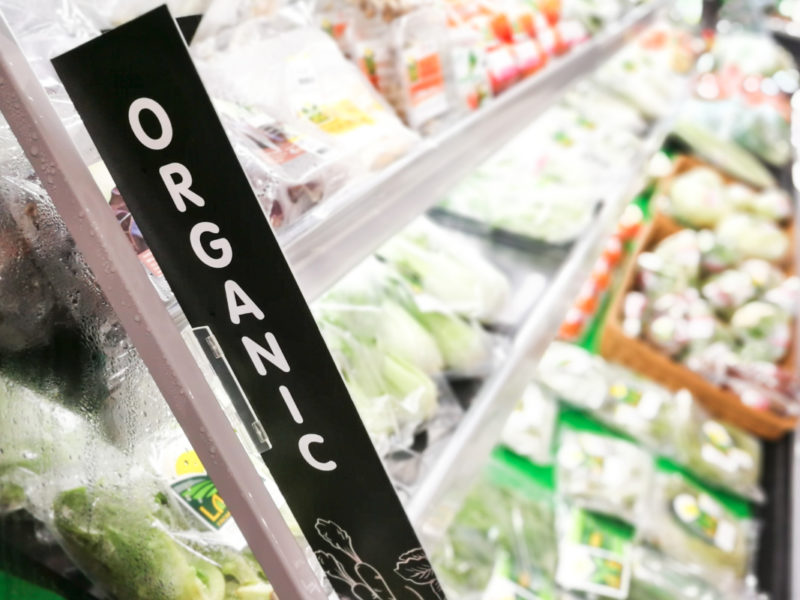October is non-GMO month and a fantastic time to dive into the world of organic farming, especially as we highlight the importance of choosing certified organic over other labels. With the rise of new labels like Regenified™, Regenerative Verified™, and Regeneratively Grown™, it’s essential to understand what these terms mean and how they compare to certified organic standards. Let’s break it down and see why sticking with certified organic (or Regenerative Organic Certified) is your best bet for true sustainability and health.
Understanding organic vs. regenerative labels

Certified organic: A proven standard
Certified organic farming is regulated by strict national standards that ensure foods are grown without synthetic pesticides, GMOs, or artificial fertilizers. This certification is recognized globally and requires farms to maintain rigorous practices that protect soil health, water quality, and biodiversity. The Organic Trade Association states that organic farming promotes ecological balance and reduces environmental impact, making it a reliable choice for health-conscious consumers.
New labels: Regenified™, Regenerative Verified™, and Regeneratively Grown™
These new labels aim to promote regenerative agriculture, which focuses on improving soil health and environmental outcomes. However, they lack the established standards and oversight that come with organic certification. Here’s why these labels might not always live up to their promises:
- Lack of clear standards
Unlike certified organic, which has detailed, legally enforced guidelines, the standards for Regenified™, Regenerative Verified™, and Regeneratively Grown™ are either vague or proprietary. For instance, the Regenified™ label allows the use of synthetic chemicals and genetically engineered crops, which can undermine its environmental benefits. Learn more in this white paper.
2. Inadequate environmental safeguards
Many of these labels do not effectively address critical environmental concerns. For example, Regenified™ fails to restrict the use of harmful chemicals and doesn’t require monitoring for crucial factors like water quality and biodiversity. This could mean less tangible benefits for the environment compared to certified organic practices.
3. No third-party verification
Certification programs like organic involve independent third-party inspections to ensure compliance with standards. In contrast, labels like Regenerative Verified™ and Regeneratively Grown™ often lack rigorous third-party verification and transparency, making it harder to trust their claims.
4. Limited scope and impact
The new regenerative labels often focus narrowly on specific practices without considering the broader impacts of farming methods. They might miss key issues such as fertilizer use and overall environmental impact. Certified organic, however, offers a comprehensive approach that addresses multiple aspects of sustainability and health.
5. Consumer confidence
Certified organic has a long history of building trust with consumers by consistently meeting high standards. New regenerative labels, while promising, need more robust frameworks and transparency to gain the same level of consumer confidence. Without this, they risk falling short of their claims.
To learn more about these new labels, you can read this detailed white paper, which goes into more detail about these labels and the differences between them and certified organic.
Why certified organic is a safer choice
Choosing certified organic ensures you’re getting products that meet established, rigorous standards for health and sustainability. Organic certification provides:
- Comprehensive environmental protection: Organic farming practices help protect soil health, reduce pollution, and promote biodiversity.
- Clear standards and transparency: With clear regulations and third-party verification, you can trust that organic products meet high standards.
- Health benefits: Organic foods are free from synthetic chemicals and GMOs, reducing potential health risks.
As you shop for your food and textiles this Organic Month, consider the benefits of certified organic products. They not only support your health but also contribute to a more sustainable and resilient agricultural system.
For more information on certified organic standards and why they matter, read this white paper, visit our website and join our mission for a healthier planet.








